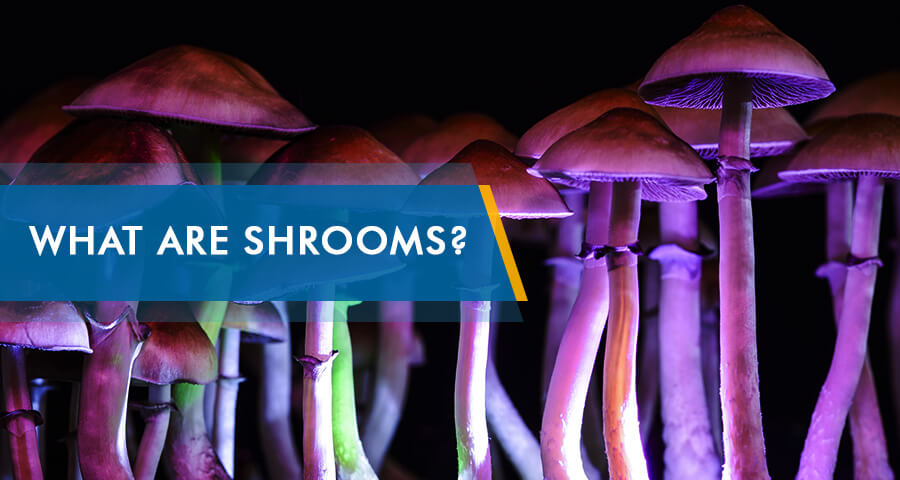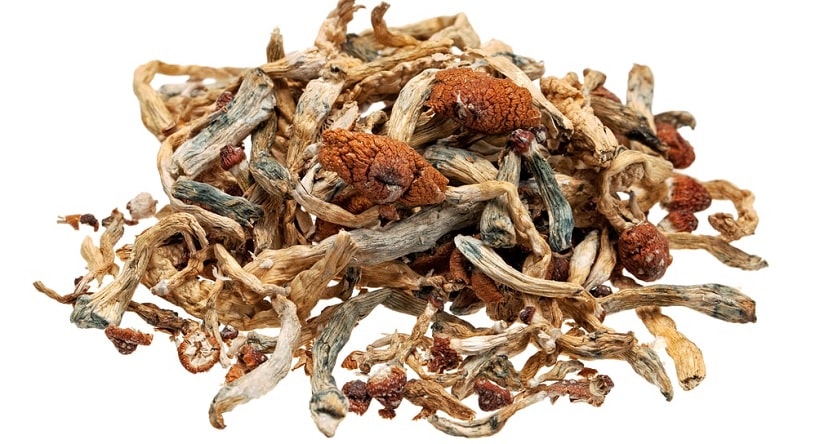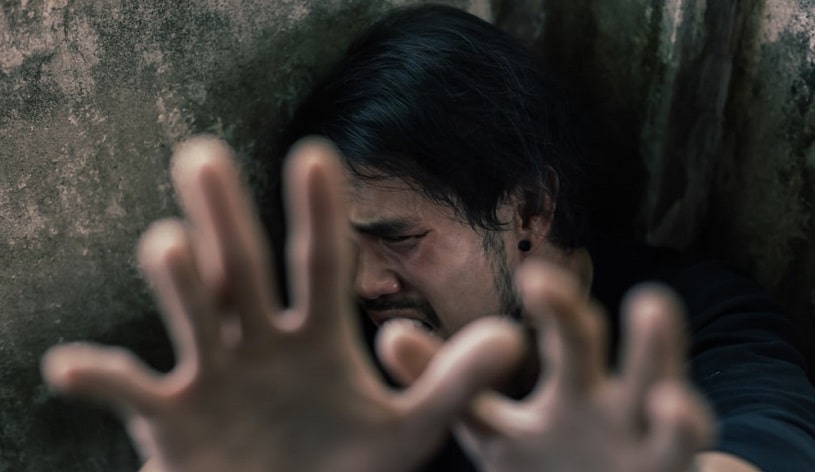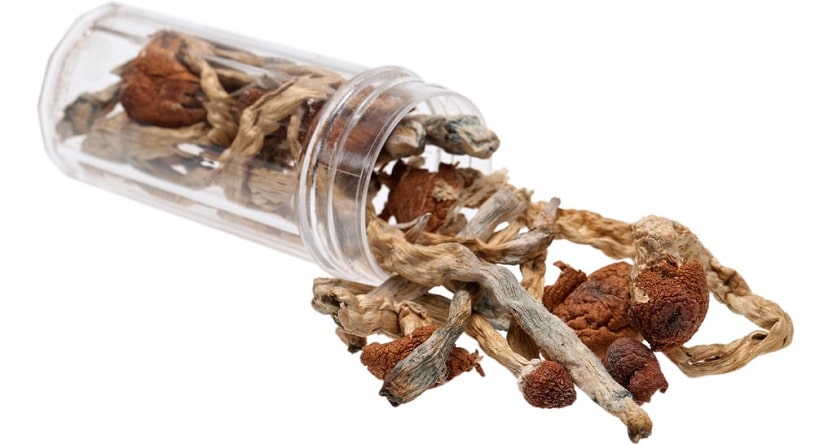
Magic mushrooms are schedule I hallucinogens that are slowly gaining popularity. Under the influence of these shrooms, whose psychoactive ingredient is psilocybin and psilocin, users will often experience short and long term health effects. Hallucinations, panic attacks, and disorientation are short-term effects, while alteration in perception and addiction form part of the long term effects. Information and various addiction plans are in place in various quarters for users hooked to these magic mushrooms.
Table Of Contents:
- What Are Psilocybin Mushrooms?
- How Common Is The Use of Shrooms?
- What Are The Effects Of Psilocybin Mushrooms?
- Are Psilocybin Mushrooms Dangerous?
- Do Shrooms Have Medicinal Value?
- Are Shrooms Addictive?
- Are Withdrawal Symptoms Common With Shrooms?
- What Addiction Treatment Is Necessary?
- Where Can One Get Treatment?

What Are Shrooms?
Psilocybin mushrooms, more commonly known as magic mushrooms, are a hallucinogenic fungus that grows in a variety of forms. Also known as shrooms, the fungus has been used for over nine thousand years. Currently, the drug is mostly used recreationally. Shrooms grow in different parts of Europe, Africa, and America. They are most famous for their psychedelic properties. Notably, this is because of their two potent substances that make up part of their chemical structure, psilocybin, and psilocin. These substances are what gives the mushrooms their psychedelic properties. They trigger the so-called “shroom trip”. When one eats magic mushrooms, the Psilocybin in them breaks down into the active ingredient called psilocin. Psilocin acts as a blocking agent, and in this case, it prevents the reuptake of the neurotransmitter called serotonin. As a result, it means that psilocin can bind and stimulate the receptors in the brain. This creates one of the most well-known effects of magic mushrooms, hallucinations. Shrooms will stay in one’s system for about 15 hours on average.
The recreational use of shrooms can be considered abuse. Possessing, selling, or purchasing them can be prosecuted.
Are Shrooms Illegal?
Under federal law, possession or distribution of magic mushrooms is illegal. These are schedule 1 drugs. Any drug in this category has no known medical use and has a high potential for abuse. However, since the beginning of 2010, different states have started decriminalizing the use of magic mushrooms, citing potential health benefits. Oakland, Colorado, Santa Cruz, and Massachusetts are some of the states that have decriminalized psilocybin. In other words, adult possession and cultivation for personal use is not illegal. It should be noted that cultivation for commercial use is still illegal.

Shrooms Statistics
The use of magic mushrooms is fairly common, with at least 17% of those aged between 21 to 26 having used a psychedelic at some point in their lifetime. More males than females have been affected. Although the information on people who have ended up in the emergency department following ingestion of magic mushrooms is scant, a good number of individuals have cited shrooms as the cause of the most challenging “bad trip” they ever experienced.
Effects Of Shrooms
Being a hallucinogen, magic mushrooms will generally induce dose-dependent visual, audio, and tactile hallucinations during the so-dubbed shroom trip. In other words, it will make users perceive non-existent images, sounds, smells, or other sensations. The net effect will, however, vary from person to person. Some of the factors determining the kind of effect experienced by different users are pre-existing mental illness, mood, amount consumed, the involvement of other drugs, and even company during ingestion.
Very high doses can make one have “a bad trip“. In such instances, affected users will experience harrowing negative emotions coupled with vivid hallucinations during this trip. Anxiety and panic attacks are common with users experiencing a bad shroom trip. During such a state, an intoxicated person can be a hazard to own health, others, and even property.
The Mental Effects Of Magic Mushrooms May Include:
- Auditory hallucinations (during the 'trip' they perceive sound where there is none)
- Confusion (they believe they can see music or hear colors)
- Dyschronometria (inability to tell what amount of time has passed between start and end of the trip)
- Altered mood
- Poor coordination
- Lightheadedness
- Anxiety
- Confusion and disorientation
- Panic attacks and paranoia
Timothy Leary from Harvard University conducted a study in the 1960s investigating the role of “the setting” on the effects of shrooms. His findings revealed that many things affected the experience while on shrooms, including the number of people one is surrounded by. He also found that shrooms heighten the suggestibility, making the user more susceptible to interpersonal contact and visual stimuli during the trip. All of these factors play a part in the kind of experience someone has on shrooms.
Users have described several unpleasant effects of shrooms. As earlier alluded, many factors will come into play to determine the type of experience users will go through.
The Negative Effects Of Shroom’s drug (psilocybin) May Include:
- Headaches
- Intense fear, followed by paranoia
- Nausea usually occurs when people eat mushrooms raw or dried
- Anxiety, due to a higher dose
- Dizziness and confusion
- Taking shrooms can exacerbate mental illness or trigger latent mental disorders
- Disruption of attention
- Dangerous repercussions when users mix it with alcohol
- Problems with blood pressure
- Muscle weakness and twitching, or convulsions
- Dry mouth, which can sometimes lead to nausea and vomiting
Are Shrooms Dangerous?
People have reported taking shrooms to be less damaging than any other hallucinogen or addictive substances. These include illicit or prescription drugs and even alcohol. However, one should certainly take into consideration the various negative effects of shrooms.
In as much as psilocybin mushrooms will be labeled as such, the possibility of consuming poisonous varieties is very real. The result would be adverse systemic effects and even death in some cases depending on the strain and amount ingested.

In people with pre-existing mental disorders, Shrooms drug use can produce unprecedented effects. Increased incidences of suicidal ideations have been reported in a section of mentally unstable patients who use magic mushrooms.
‘Bad trips’ are not uncommon with psilocybin mushrooms. The user will experience intense changes in perception leading to confusion, agitation, panic, and even brief psychotic episodes. Although not all individuals will experience bad trips, new users and individuals with pre-existing mental instability are more prone. This cannot be a reliable way of predicting who gets to have a bad trip. To minimize the chances of getting a bad trip, take them to familiar territories, consume in moderation, and avoid consumption if having a bad day or when experiencing some form of insecurity.
Long-term Dangers
A section of one-time users has reported changes in perception lasting up to 14 months after taking shrooms. Although this phenomenon has not been seen in all users, it’s a pointer to the uncertainty surrounding the long-term effects of magic mushroom consumption.
People Who Consume Shrooms For a Prolonged Period May Experience the Following Long-Term Effects:
- Disconnected thoughts, i.e., Various changes in thinking patterns
- False beliefs that have no basis, i.e., delusions
- Continuous hallucinations
- Volatile mood
- Lack of organized behavior
- Constant forgetfulness
Some of the scary effects in the long-term have connections to the mental state of the user. One can develop some conditions. They are paranoid thinking, inability to distinguish reality from fantasy, psychosis, and schizophrenia. It’s even worse for patients with a mental disorder. This is because shrooms can worsen the symptoms of schizophrenia and paranoia.
A study conducted in 2011 by Roland R. Griffiths suggests that a single, high dose of the drug found in shrooms (psilocybin) can cause long-term personality changes in its users. There was an increase in the personality dimension of openness, which was still measurable a year after the experiment. It was suggested that the mystical experiences users have while under the influence may be the underlying cause of lasting change.
Another one of the scary effects is a phenomenon called hallucinogen persisting perception disorder. Long after using psilocybin, users have reported distorted perception of size, perception of halos and objects in the peripheral field of vision, and blurring small patterns. These occurrences that mimic the effect of acute hallucinogen intoxication are usually spontaneous. Vivid flashback will usually come to individuals during a drug-free period. It will be as if the individual is intoxicated.
No reliable method of predicting when and to whom hallucinogen persisting perception occurs is currently in existence. At least 5 percent of people who have used a hallucinogen in the past report these vivid flashbacks at some point in their life.
Management of this disorder with lamotrigine (a drug normally used to treat some seizure disorders) has shown some promise.
Do Magic Mushrooms Have Medicinal Value?
Due to its schedule I status, not much quality research has been done to demonstrate the medicinal properties of psilocybin mushrooms. Preliminary data hints at the possibility of magic mushrooms finding use in depression, anxiety, obsessive-compulsive disorders, alcohol use disorder, and but not limited to tobacco use disorders.

The ‘serotonin hypothesis’ postulates that depression stems from depletion or reduction in the activity of serotonin. This is a molecule in the brain responsible for stabilizing mood and promoting a sense of well-being. In depression, individuals have diminished levels of this neurotransmitter. Current antidepressant medications make use of this fact. Most prevent the reuptake of serotonin into neurons. Consequently, the actions of serotonin (in this case, promoting a sense of well being) lingers longer.
As noted earlier, magic mushrooms also act on the serotonin pathways. Its active ingredients, psilocybin, and psilocin block the reuptake of serotonin into the nerve cells. It is this mode of action that has the potential of use in the mental disorders listed.
Are Shrooms Addictive?
Mushrooms do not fall into the group of physically addictive substances. Well, at least not yet, and they have no link with causing any brain damage. However, developing shroom tolerance can happen easily in a very short amount of time. Though, it does reduce in just a few days. Shrooms can not cause physical addiction. But, there is a chance of psychological addiction. In most cases, the reason why users continue a higher shroom intake is due to the “spiritual journey.” This “journey” can become highly addictive. In other words, users become addicted to the ‘shroom trip’ experience, that they will crave the trip but not the substance itself. As a result, a psychological variant of addiction can occur.
Signs And Symptoms Of Shrooms Addiction
By being a hallucinogen, magic mushrooms can produce changes in perception, thinking, and even sense of time. Over time, shroom tolerance also develops.
The Following Symptoms Might Point Towards an Addiction Problem:
- Continuous hallucinations
- Changes in perception
- Increased pulse rate
- Altered reality such as seeing colors, hearing tastes, or tasting sounds
- Uncontrollable shaking
- Flashes from the past
- Increased sense of happiness
- Increased blood pressure
- Mood swings/volatile behavior
- Continual paranoid thoughts
- Uncontrolled aggressive behavior
- Depression
- Changes in appetite
- Obsession with spirituality
- Abnormal desire to find themselves
- Mixing dreams with reality
- Changes in personality and appearance
- Lack of responsibilities
A manifestation of any of the above will more often than not be a telltale sign of addiction to psilocybin. Such in a loved one, relative, or friend should prompt one to seek professional help.
Shroom Withdrawal
Psilocybin— is the most active chemical found in shrooms. Luckily, it does not trigger withdrawal symptoms. Therefore, drug replacement therapy is not required during psilocybin detox. However, most of the habit-forming chemicals are stored in fatty tissues. So, slight withdrawal symptoms may occur due to the sudden stoppage of the substance. Withdrawal symptoms from shrooms are virtually non-existent.
The Following Symptoms May Occur In Certain Cases:
- Hypothermia
- Loss of appetite
- Dilated pupils
- Impaired motor skills
- Increased heart rate
- Nausea
- Vomiting
Addiction Treatment
Avoiding the signs of withdrawal symptoms and side effects is hard. Experts often recommend a slight decrease of the mushroom dosage. As such, removing the abuser gently off the substance. Furthermore, there are times when they might have to conduct sensory stimulation. They do this to reduce HPPD (Hallucinogen persisting perception disorder) symptoms. It’s done to prevent or control seizures and agitation. Finally, usage of benzodiazepines may also have to be used during mushrooms detox.
Receiving detox treatment is always a better option than undergoing detox alone. Withdrawal of mushroom abuse may be non-existent. A shrooms abuser who wants to quit should enter a reliable detox center, where they can be supervised by medical experts who can offer proper treatment.

When a person enters a shroom detox center, they will go through many steps of recovery. One of those steps would be receiving behavioral-based therapy. Another step may include CBT (cognitive-behavioral therapy). Lastly, upon completing rehab, which can last from a few days to a few weeks. The patient will have a few options to choose from as far as his/her further treatment goes.
They Can Opt For the Following:
- Outpatient Therapies And Programs
- Motivational Interviewing
- Multidimensional Family Therapy
- Motivational Incentives
Where To Get Treatment
The science surrounding shrooms use is still scanty. With the increasing use and even legalization in some states, the problem can only get bigger. More of the short term and long term effects will become more rampant. There might also emerge newer deleterious effects that are currently not known to science. More data is needed before psilocybin gets a clean bill of health.
If one has a shrooms addiction, then there are several ways how one can get treatment. These include inpatient care and dual diagnosis care. Getting help in these rehabilitation centers will help to minimize withdrawal symptoms and get care around the clock. In these cases, any psychological effects from the drug will also be combated with the use of psychotherapy.
Frequently Asked Questions
Can one smoke shrooms?
Smoking magic mushrooms is possible. Some users have reported drying the mushrooms and rolling them up like cigarettes. Some users have reported that the hallucinogen effect derived from smoking is way milder than that derived from ingesting a similar amount orally. Quality scientific information on smoking shrooms is scanty.
Can one overdose on shrooms?
Although not usually fatal, shrooms drug overdose is possible with the resultant increase in the possibility of having a bad trip. Some of the signs that a user has taken more than they can handle will be extreme anxiety, panic attacks, inability to tell reality and fantasy apart, and but not limited to acute psychotic episodes.
What do shrooms look like?
Before delving into how shrooms look like, it’s of immense importance to know that about 70 – 80 species of psychedelic mushrooms do exist. These bear a striking resemblance to the edible mushrooms. Caution should always be exercised, and information contained herein should not be used as a reference if the intention is to identify psilocybin mushrooms accurately.
A huge number of magic mushrooms are in existence all over the world. Psilocybin-containing mushrooms bear a resemblance to regular mushrooms that have been dried. They have slender white to gray stalks with brownish caps dotted white light brown at the center. The shape of the cap varies from species to species. Some like Psilocybe azurescens have a cap shaped like a flying saucer. Others like Psilocybe cyanescens have a wavy cap.
Find Drug Rehabilitation Centers Near You Anywhere In the US
Addiction Resource team has compiled an extensive list of the top drug rehabilitation facilities around the country. Use our locator tool to find the best centers near you.
Page Sources
- UNITED NATIONS, CONVENTION ON PSYCHOTROPIC SUBSTANCES, 1971, https://www.unodc.org/pdf/convention_1971_en.pdf
- Teri S Krebsa, Pål-Ørjan Johansen, Over 30 million psychedelic users in the United States, 2013, https://www.ncbi.nlm.nih.gov/pmc/articles/PMC3917651/
- Theresa M Carbonaro, Matthew P Bradstreet, Frederick S Barrett, Katherine A MacLean, Robert Jesse, Matthew W Johnson, and Roland R Griffiths, Survey study of challenging experiences after ingesting psilocybin mushrooms: Acute and enduring positive and negative consequences, 2016, https://www.ncbi.nlm.nih.gov/pmc/articles/PMC5551678/
- Psilocybin (Mushrooms), https://shop.ucsc.edu/alcohol-other-drugs/other/mushrooms.html
- Katja Müller , Klaus Püschel, Stefanie Iwersen-Bergmann, Suicide under the influence of "magic mushrooms", 2013, https://pubmed.ncbi.nlm.nih.gov/23878898/
- Bheatrix Bienemann, Self-reported negative outcomes of psilocybin users: A quantitative textual analysis, 2020, https://www.ncbi.nlm.nih.gov/pmc/articles/PMC7034876/
- Roland R Griffiths , Matthew W Johnson, William A Richards, Brian D Richards, Una McCann, Robert Jesse, Psilocybin occasioned mystical-type experiences: immediate and persisting dose-related effects, 2011, https://pubmed.ncbi.nlm.nih.gov/21674151/
- Jeremy Daniel, Clinical potential of psilocybin as a treatment for mental health conditions, 2018, https://www.ncbi.nlm.nih.gov/pmc/articles/PMC6007659/
- Leo Hermle, Melanie Simon, Martin Ruchsow and Martin Geppert, Hallucinogen-persisting perception disorder, 2012, https://www.ncbi.nlm.nih.gov/pmc/articles/PMC3736944/
- National Institute On Drug Abuse. What Are the Effects of "Shrooms" on the Brain and Body? https://teens.drugabuse.gov/node/12836


 Reviewed by:
Reviewed by:  Written by:
Written by: 

 FindTreatment.gov
FindTreatment.gov